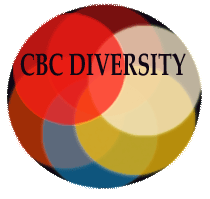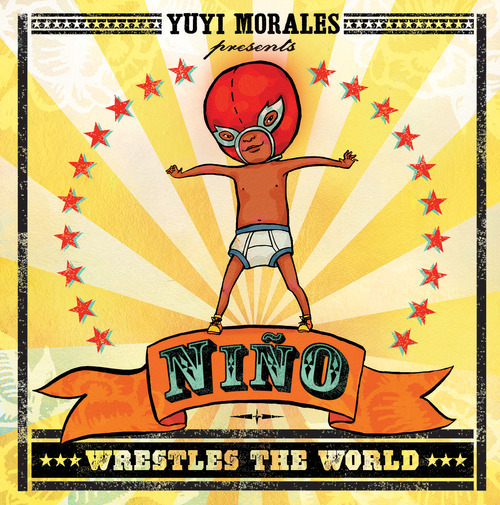CBC Diversity: A panelist’s take on the Diversity 101 ALA Midwinter Discussion

Contributed by Connie Hsu
This year, I had the honor of joining some very insightful, experienced, and passionate people on a panel sponsored by the CBC Diversity. The session touched on what CBC Diversity has been up to, with a focus on the Diversity 101 series we feature on our blog, as well as ALSC’s Día initiative, dedicated to helping librarians work with their community to build interest and excitement for literacy dedicated to all children from all backgrounds. You can find out more about Día (short for “Diversity in Action) here. (Shameless plug—their book list includes Ask My Mood Ring How I Feel by Diana Lopéz!)
Last year’s panel, which you can listen to here, introduced librarians to the CBC Diversity committee and our mission to increase diversity on all levels of publishing, from our authors and the stories they create to the professionals working in every level from this field. And we in turn learned from a few participating librarians just how brightly passions burned for more attention to this mission.
This year, we brought a little more diversity to the panel. By diverse I mean that we included a terrific librarian representative (Ana-Elba Pavon from the Oakland Public Library) as well as a larger group of editors from a range of publishers (Dan Ehrenhaft of Soho Teen, Wendy Lamb of Penguin Random House, Cheryl Klein of Scholastic, who was our moderator, and me, representing Little, Brown Books for Young Readers).
I won’t go into the ditzy details of the conversation, since an audio version will be available in the next couple of weeks. But I can share some helpful takeaways from our overall conversation, prompted by organic discussion among the panelists and the audience members who came up during the Q&A session.
Generally, a panel consists of experts who share insight and experience with an audience there to learn. In our case, I felt the tone was much different. Under the excellent guidance of Cheryl, our conversations were more centered on what we learned from the resources provided by the Diversity committee and blog and how that has shaped how we approach the books we edit and acquire. We were there to demonstrate how there’s always something more to be learned and how nobody is a true expert. We discussed how some of the Diversity 101 posts have opened our eyes to how marginalized characters are treated in books, in a micro-aggressive (or sometimes flat out aggressive) way, like The Disabled Saint, where Kayla Whaley discusses how disabled characters are often fodder for “inspiration porn” and Alma Flor Ada’s deeply thoughtful and insightful post about the nuances and complexities of Spanish and how to use and respect the language.
While these posts are eye-opening and educational, we editors often find them intimidating as well. There is so much to think about, and when we push ourselves to work on books featuring diversity, often editing from “outside” our experience, we feel like we’re putting ourselves out there and risking criticism. One request is for all of us, both in the publishing and library world, to try to be open-minded in terms of how successful we personally deem these books. Fear of criticism should not be one of the challenges in bringing good, diverse books to the world, and while we are always aiming for authenticity and top-notch literary value, sometimes we have to step back and relax a little. Dan and Wendy spoke about a future post, where they will touch on this topic in more detail.

Ana-Elba shared details about Día and the programming that can be developed around this initiative, directing folks to the Día website, which is packed with information. While Día began with a Latino focus, it now encompasses all kinds of diversity. Ana-Elba shared an example of a good book for Día for this year’s celebration, one that will pull in all readers while expertly incorporating a multicultural theme—Yuyi Morales’s Nino Wrestles the World, which we learned on Monday was this year’s Pura Belpré Illustrator winner. The 17th annual Día de los libros/Día de los Ninos will be held on April 30th this year.
We had some great suggestions from the audience, such as including more diverse books in book fairs, encouraging book clubs and stores to take these titles, as well as using resources like the Luminarias, a group of Texas librarians who actively reach out to non-Spanish speaking educators. Shelley Diaz of School Library Journal also shared that the magazine will be dedicating an issue this spring to diversity.
The biggest eye-opener was during the Q&A, where Reforma member Oralia Garza de Cortés asked publishers to be more transparent about our numbers, which meant our stats in terms of the diverse books and authors we publish. She said she felt there were walls between the librarians and publishers, and that they often feel that they aren’t able to reach us. As we sat there, on a panel behind a table a few yards away from the audience, we all realized that perhaps the forum could change for future events like these. Rather than a panel, we can consider an open discussion, where ideas can be shared and cultivated, and to assure that the only walls are the ones that librarians and publishers can break down together, side-by-side.

